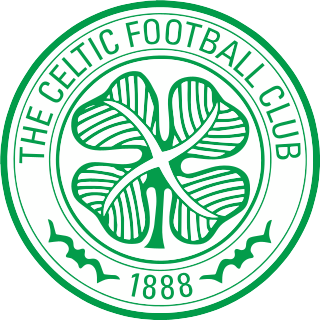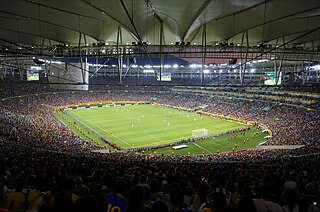
West Bromwich Albion Football Club is a football club in West Bromwich, West Midlands, England. They currently play in the Championship, the second tier of English football. The club was formed in 1878 and has played at its home ground, The Hawthorns, since 1900.

Aston Villa Football Club is an English professional football club based in Aston, Birmingham. The club competes in the Premier League, the top tier of the English football league system. Founded in 1874, they have played at their current home ground, Villa Park, since 1897. Aston Villa were one of the founder members of the Football League in 1888 and of the Premier League in 1992. Villa are one of only five English clubs to have won the European Cup, in 1981–82. They have also won the Football League First Division seven times, the FA Cup seven times, the League Cup five times, and the UEFA Super Cup once.

Alan Shearer, CBE, DL is an English retired footballer. He played as a striker in the top level of English league football for Southampton, Blackburn Rovers, Newcastle United and the England national team. He is Newcastle's and the Premier League's record goalscorer. He was named Football Writers' Association Player of the Year in 1994 and won the PFA Player of the Year award in 1995. In 1996, he was third in the FIFA World Player of the Year awards. In 2004 Shearer was named by Pelé in the FIFA 100 list of the world's greatest living players.

The Celtic Football Club is a Scottish professional football club based in Glasgow, which plays in the Scottish Premiership. The club was founded in 1887 with the purpose of alleviating poverty in the immigrant Irish population in the East End of Glasgow. They played their first match in May 1888, a friendly match against Rangers which Celtic won 5–2. Celtic established themselves within Scottish football, winning six successive league titles during the first decade of the 20th century. The club enjoyed their greatest successes during the 1960s and 70s under Jock Stein when they won nine consecutive league titles and the 1967 European Cup. Celtic have played in green and white for the entirety of its history, adopting hoops in 1903, those being used ever since.

James Philip Milner is an English professional footballer who plays for Premier League club Liverpool. A versatile player, he has been used in many different positions such as on the wing, in midfield and at full back. Milner is Liverpool's vice-captain.

John Charles Bryan Barnes MBE is an English former professional footballer and manager, who currently works as a commentator and pundit for ESPN and SuperSport. A fast, skillful left winger, Barnes had successful periods at Watford and Liverpool in the 1980s and 1990s, and won 79 caps for England.

Association football is the most popular sport in Brazil and a prominent part of its national identity. The Brazil national football team has won the FIFA World Cup tournament five times, the most of any team, in 1958, 1962, 1970, 1994 and 2002. Brazil and Germany are the only teams to succeed in qualifying for all the World Cups for which they entered the qualifiers; Brazil is the only team to participate in every World Cup competition ever held. It is among the favorites to win the trophy every time the competition is scheduled. After Brazil won its third World Cup in 1970, they were awarded the Jules Rimet Trophy permanently. Brazil has also won an Olympic Gold Medal, at the 2016 Summer Olympics held in Rio de Janeiro.

Association football culture refers to the cultural aspects surrounding the game of association football. As the sport is global, the culture of the game is diverse, with varying degrees of overlap and distinctiveness in each country. In many countries, football has ingrained itself into the national culture, and parts of life may revolve around it. Many countries have daily football newspapers, as well as football magazines. Football players, especially in the top levels of the game, have become role models for people.
Association football is organised on a separate basis in each of the four constituent countries that make up the United Kingdom (UK), with each having a national football association responsible for the overall management of football within their respective country. There is no United Kingdom national football team. Football has been the most popular sport in the UK since the 1860s. Rugby union, rugby league and cricket are other popular sports.

Football hooliganism or soccer hooliganism is disorderly, violent or destructive behaviour perpetrated by spectators at association football events.

Marc-André Zoro Kpolo, known as Marco Zoro, is an Ivorian former professional footballer who played as a central defender.
Professional sports leagues are organized in numerous ways. The two most significant types are one that developed in Europe, characterised by a tiered structure using promotion and relegation to determine participation in a hierarchy of leagues or divisions, and a North American originated model characterized by its use of "franchises," closed memberships, and minor leagues. Both these systems remain most common in their area of origin, although both systems are used worldwide.

Rugby union in England is one of the leading professional and recreational team sports. In 1871 the Rugby Football Union, the governing body for rugby union in England, was formed by 21 rugby clubs, and the first international match, which involved England, was played in Scotland. The English national team compete annually in the Six Nations Championship, and are former world champions after winning the 2003 Rugby World Cup. The top domestic men's club competition is Premiership Rugby, and English clubs also compete in international competitions such as the European Rugby Champions Cup. The top domestic women's competition is the Premier 15s.

Rugby union in Ireland is a popular team sport. Rugby union is organised on an all-Ireland basis with one national team, governing body and league for both the Republic of Ireland and Northern Ireland. Ireland is the third-oldest rugby nation after England and Scotland respectively, and the game was organised there fractionally before in Wales.
Racism in association football is the abuse of players, officials, and fans because of their skin colour, nationality, or ethnicity. Some may also be targeted because of their association with an opposing team. However, there have been instances of individuals being targeted by their own fans.

Sport in England plays a prominent role in English society. Popular teams sports in England include football, field hockey, cricket, rugby union, rugby league, and netball. Major individual sports include badminton, athletics, tennis, boxing, golf, cycling, motorsport and horseracing. A number of modern sports were codified in England during the nineteenth century, among them cricket, rugby union, rugby league, football, field hockey, squash, tennis, and badminton. The game of baseball was first described in 18th century England.

Ki Sung-yueng is a South Korean professional footballer who plays as a central midfielder for Newcastle United and the South Korea national team.
The term "British Asian" generally refers to British citizens who can trace their origin to South Asia; however, it also refer to those of East Asian origin. The lack of British Asians in association football has received significant media attention, and has seen some clubs announce plans to explicitly target young British Asian players.
Football Unites, Racism Divides (FURD) is a youth and social inclusion project and charity based in Sheffield, England which uses football as a tool to 'break down barriers created by ignorance or prejudice'. It works locally, nationally and internationally to combat racism and increase understanding between different communities.

Aston Villa F.C. and West Bromwich Albion F.C. are two English football clubs from the West Midlands who share a local rivalry. The matches between them are known as West Midlands derbies.























